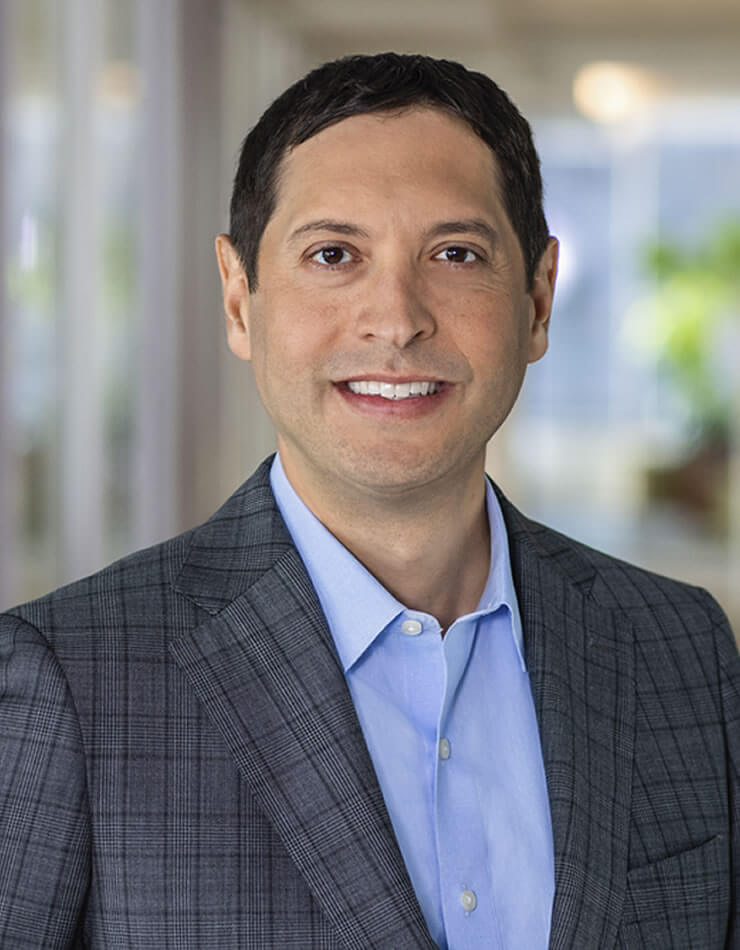Oakmark Select Fund – Investor Class
Average Annual Total Returns 12/31/23
Since Inception 11/01/96 11.80%
10-year 8.86%
5-year 15.94%
1-year 43.00%
3-month 14.61%
Expense Ratio: 0.98%
Expense ratios are from the Fund’s most recent prospectus dated January 28, 2023; actual expenses may vary.
Past performance is no guarantee of future results. The performance data quoted represents past performance. Current performance may be lower or higher than the performance data quoted. The investment return and principal value vary so that an investor’s shares when redeemed may be worth more or less than the original cost. To obtain the most recent month-end performance data, view it here.
The Oakmark Select Fund (“the Fund”) returned 14.61% during the fourth quarter, outperforming the S&P 500 Index’s return of 11.69%. For the full-year 2023, the Oakmark Select Fund returned 43.00% compared to 26.29% for the S&P 500 Index. Since its inception in November 1996, the Fund has returned an average of 11.80% per year, outperforming the S&P 500 Index’s annualized total return of 9.30% over the same period.
We are pleased with the Fund’s strong performance this year, especially considering that 2023 was a challenging year for value stocks, with the Russell 1000 Value underperforming the Russell 1000 Growth by 31 percentage points. Given this backdrop, we continue to find attractive opportunities to invest in undervalued securities that meet our value investment criteria today.
The highest contributing securities for the fourth quarter were CBRE Group and Capital One Financial and the largest detractors were Charter Communications and APA Corp. From a sector perspective, the largest contributors were financials and real estate and the largest detractors were communication services and energy. In response to the price moves this quarter, we modestly trimmed our ownership of strong performers, like CBRE and Capital One, though we continue to believe both are attractive holdings. Meanwhile, we have added to our energy holdings in response to the recent weakness. (See new positions discussion below.)
For the calendar year, the highest contributing securities were First Citizens Bancshares and Alphabet and the largest detractors were APA Corp. and EOG Resources. The largest contributing sectors were financials and information technology. There were no detracting sectors.
As discussed in prior letters, we added significantly to information technology stocks early in 2023 as we believed the stocks were priced well below their intrinsic values. These holdings have since performed well and their stock prices have generally increased faster than our intrinsic value estimates. This created the opportunity to redeploy capital into stocks that we believe offer superior prospective risk-adjusted returns. That trend continued in the latest quarter as we sold our position in Oracle and bought new positions in American Express, Paycom Software and Phillips 66.
American Express
American Express is one of the largest credit card issuers and payment networks in the world. We believe the company’s closed-loop network, brand equity and scale represent durable competitive advantages. Unlike most card issuers that process credit card transactions over third-party networks, American Express processes transactions over its own network. This allows American Express to earn greater economics than peers on each card transaction. The company retains part of this advantage in the form of higher profitability and reinvests the rest in enhanced customer rewards and service. Over time, these investments have helped American Express build its brand and attract more lucrative, high-spending card customers. We expect this business model and customer-centric approach will continue to drive industry-leading growth for years to come. Concerns over the near-term economic outlook allowed us to purchase shares of American Express at a 13x P/E on next year’s consensus earnings estimate. We think that is an attractive valuation for a company with this combination of business quality and growth.
Paycom Software, Inc.
Paycom is an Oklahoma City-based payroll and human capital management software company led by founder and CEO Chad Richison. For years, Paycom has traded at a premium multiple thanks to its rare combination of fast growth and high profit margins. Under Mr. Richison’s leadership, Paycom has grown revenue at more than 30% per year for the last decade and currently produces high-20s operating profit margins. Recently, though, an operational misstep related to the rollout of a new product caused revenue growth to slow and sent the stock down 40%. Paycom now trades near its all-time low revenue multiple and at a discount to the broader software industry. We believe the recent operational issue will prove temporary and that Paycom’s superior profitability and favorable long-term growth prospects justify a premium valuation relative to industry peers. We view today’s discount as an opportunity to invest in a great company at a reasonable price.
Phillips 66
Phillips 66 is an integrated downstream energy company that operates refineries, pipelines, chemical manufacturing plants and retail gas stations. Like most U.S.-based oil refiners, Phillips 66 is currently earning abnormally high profit margins thanks to a tight market for refined products, like gasoline, diesel and jet fuel. Many investors worry that these elevated margins are unsustainable and, therefore, they assign low P/E multiples to the refiners. Indeed, Phillips 66 and its peers Valero and Marathon Petroleum all trade for around 9x next year’s earnings. Unlike the other refiners, however, the majority of value at Phillips 66 comes from its non-refining segments, which provide a more stable base of cash flow. We believe this business mix and management’s cost-cutting and capital-return priorities will bolster earnings per share, even if refining margins return to historical levels. As a result, we believe we are paying a single-digit multiple of normalized earnings for Phillips 66 today. We see this as an attractive price for a solid business.
As always, we take into consideration the tax efficiency of the Fund to help maximize after-tax returns. As a result, the Oakmark Select Fund made no annual capital gains distributions in 2023.
We thank you, our fellow shareholders, for your investment in the Oakmark Select Fund.
The securities mentioned above comprise the following preliminary percentages of the Oakmark Select Fund’s total net assets as of 12/31/2023: Alphabet Cl A 6.5%, American Express 3.3%, APA 1.9%, Capital One Financial 6.6%, CBRE Group Cl A 8.0%, Charter Communications Cl A 3.7%, EOG Resources 1.7%, First Citizens Bcshs Cl A 5.6%, Marathon Petroleum 0%, Oracle 0%, Paycom Software 2.6%, Phillips 66 3.0%, and Valero 0%. Portfolio holdings are subject to change without notice and are not intended as recommendations of individual stocks.
Access the full list of holdings for the Oakmark Select Fund as of the most recent quarter-end.
The information, data, analyses, and opinions presented herein (including current investment themes, the portfolio managers’ research and investment process, and portfolio characteristics) are for informational purposes only and represent the investments and views of the portfolio managers and Harris Associates L.P. as of the date written and are subject to change and may change based on market and other conditions and without notice. This content is not a recommendation of or an offer to buy or sell a security and is not warranted to be correct, complete or accurate.
Certain comments herein are based on current expectations and are considered “forward-looking statements.” These forward looking statements reflect assumptions and analyses made by the portfolio managers and Harris Associates L.P. based on their experience and perception of historical trends, current conditions, expected future developments, and other factors they believe are relevant. Actual future results are subject to a number of investment and other risks and may prove to be different from expectations. Readers are cautioned not to place undue reliance on the forward-looking statements.
Harris Associates L.P. does not provide tax or legal advice. Please consult with a tax or legal professional prior to making any investment decisions.
The price to earnings ratio (“P/E”) compares a company’s current share price to its per-share earnings. It may also be known as the “price multiple” or “earnings multiple”, and gives a general indication of how expensive or cheap a stock is. Investors should not base investment decisions on any single attribute or characteristic data point.
The S&P 500 Total Return Index is a float-adjusted, capitalization-weighted index of 500 U.S. large-capitalization stocks representing all major industries. It is a widely recognized index of broad, U.S. equity market performance. Returns reflect the reinvestment of dividends. This index is unmanaged and investors cannot invest directly in this index.
The Russell 1000® Value Index measures the performance of the large-cap value segment of the U.S. equity universe. It includes those Russell 1000® companies with lower price-to-book ratios and lower expected growth values. This index is unmanaged and investors cannot invest directly in this index.
Russell 1000® Growth Index is an unmanaged index that measures the performance of the large-cap growth segment of the U.S. equity universe. It includes those Russell 1000® companies with higher price-to-book ratios and higher forecasted growth values. This index is unmanaged and investors cannot invest directly in this index.
Because the Oakmark Select Fund is non-diversified, the performance of each holding will have a greater impact on the Fund’s total return, and may make the Fund’s returns more volatile than a more diversified fund.
The stocks of medium-sized companies tend to be more volatile than those of large companies and have underperformed the stocks of small and large companies during some periods.
All information provided is as of 12/31/2023 unless otherwise specified.







